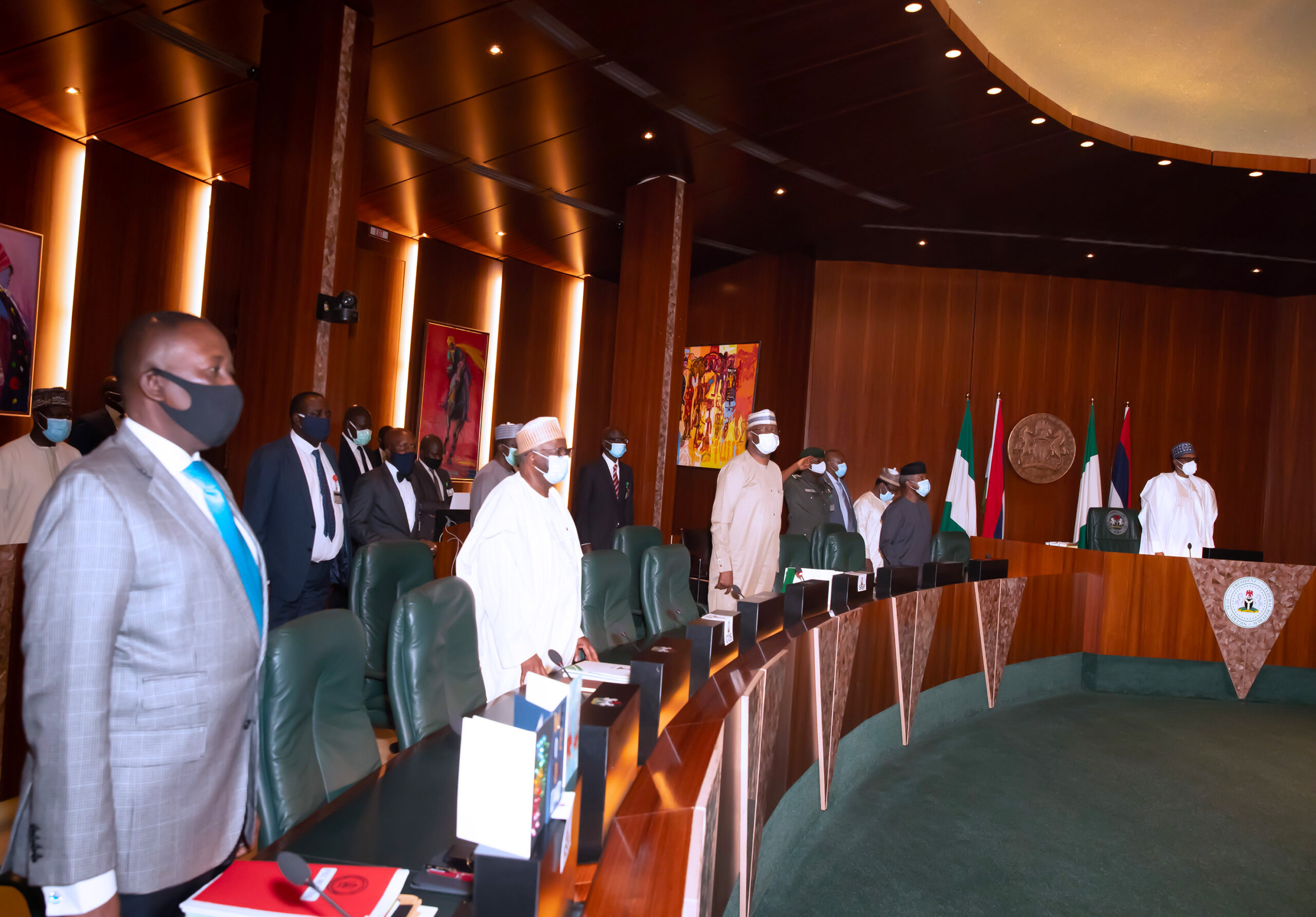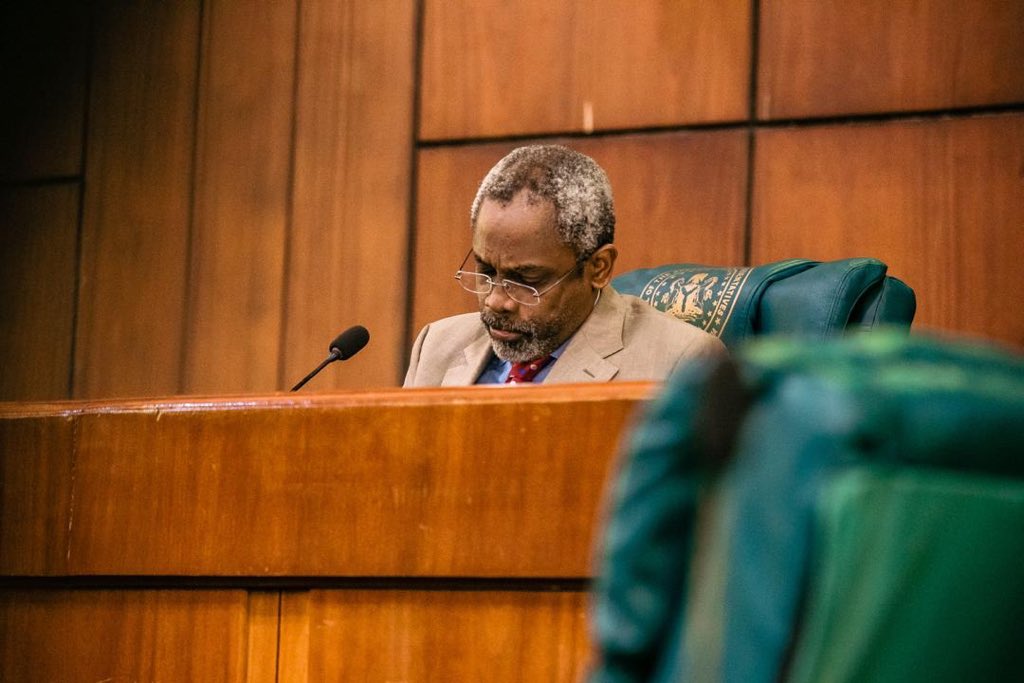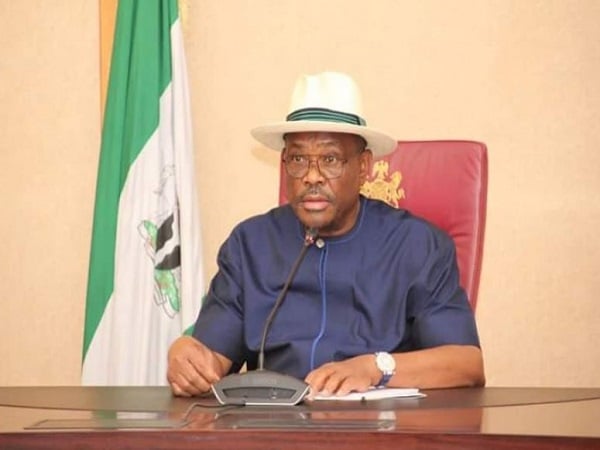PRESIDENT BUHARI PRESIDES OVER A VIRTUAL FEC. MEETING 2. R-L; President Muhammadu Buhari, Vice President Yemi Osinbajo SAN, SGF, Mr. Boss Mustapha, Chief of Staff Prof Ibrahim Gambari and NSA to the President Maj Gen Babagana Monguno Rtd during a virtual FEC Meeting held at the Council Chambers State House Abuja. PHOTO; SUNDAY AGHAEZE. SEPT 23 2020
The Federal Executive Council presided over by President Muhammadu Buhari, on Wednesday, was silent on the attack on peaceful protesters at Lekki area of Lagos.
Osagie Ehanire, minister of health, however, said a bill has been approved to establish a council for traditional, alternative and complementary medicine practice in Nigeria.
Speaking to state house correspondents at the end of the 20th cabinet meeting, which held at the council chambers, he said the establishment of the council became necessary to provide an avenue for developing traditional medicine alternatives.
“The outbreak of COVID-19 has renewed the call for home-grown solutions to all these public health diseases and to find the value in our traditional medicines, and this is an opportunity with which traditional medicine’s practice can, not only be upscaled, but also regulated because there are also areas of malpractice that should be checked,” Ehanire said.
Advertisement
“It will also provide for the possibility of trainings, setting up institutions and also being able to research further, working with the institute of pharmaceutical research of Nigeria to actually dig out the values that are in our traditional medicines, where they can be used and be used for research.
“There’s also conversation about protecting the intellectual property rights of who knows these medicines. My attention was drawn to the fact that property rights are not so easily protected the way we define them; they are defined differently.
“The protection of traditional knowledge is something that can also be established, on which we are going to be discussing with the ministry of industry, trade and investment, to protect the knowledge that has been accumulated over several generations, which is in the custody of traditional practitioners.
Advertisement
“By and large, this is a memo that meets a lot of demands and serves a lot of purposes.”
Also speaking with journalists, Muhammad Mahmood, minister of environment, said the council has approved a national policy on plastic waste management in Nigeria.
“The federal ministry of environment today presented a memo on the national policy on plastic waste management in Nigeria,” he said.
“Recall that about three months ago, we presented a memo on solid waste management, and plastic, being one of the compositions of total waste, has a significant place in the total waste regime because of its non-biodegradable nature and we have plastics littered all over the place, which is an environmental hazard to both humans and animals.
Advertisement
“What this policy seeks to do is to seize the opportunity of our paradigm shift from linear to circular economy. The standard procedure in the past was, you produce, you use and dispose and we just realised that we cannot continue to do that and plastic has lent itself to recycling or reuse.
“Therefore, what this policy intends to achieve is to capitalise on that property of it being reused.”
On his part, Adeniyi Adebayo, minister of industry, trade and investment, added that Nigeria has now attained full membership of the International Coffee Organisation.
“My ministry presented a memo on the need for us to ratify our membership of International Coffee organisation. We signed the International Coffee agreement in the year 2008 and yesterday, Nigeria had now ratified this agreement,” he said.
Advertisement
“Now that the council has approved the ratification, some of the benefits that will come to the country would include allocation of coffee development projects, access to consultative fora on coffee sector finance, where our farmers will have access to where they can raise funds to improve farm yield.
“We will be in the fora where producing and consuming countries create policies relating to international coffee trade and we will also have access to statistical data of the world coffee trade and economy.”
Advertisement






